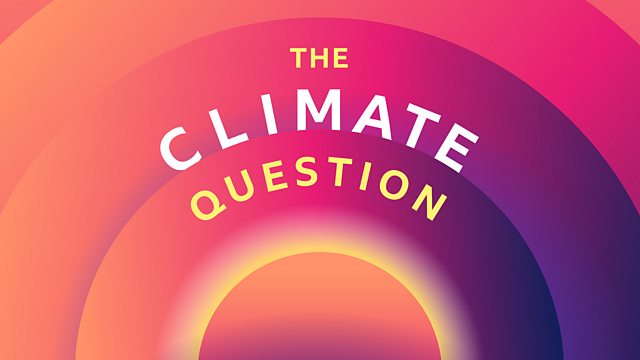A glance at the map of South Asia reveals that national borders or state boundaries contribute little (if anything) to our understanding of societies and vulnerable tribal communities. Their lives depend on access to shared resources first denied by colonial powers in search of “free” land and “cheap” (enslaved/bonded) labour; and eventually by businesses run by well-connected executives.
All over the world Indigenous communities – those formerly conforming to western stereotypes about “hunter-gatherers” – are among the most vulnerable ones: their way of life is threatened by multiple factors. These factors include urbanization (loss of biodiversity) and tourism in remote regions (now connected by highways). Many are being displaced by deforestation that results in water shortages, further aggravated by climate change in South Asia’s mountain regions. (Click here to find up-to-date press coverage on this issue in the search window seen below.)
Many mountain or forest dwelling communities are included in the administrative category called “Denotified, Nomadic, Semi-nomadic (SEED) Tribes“. Their survival depends on justice whereas romanticising their way of life is rightly regarded as a distraction from issues such as unsustainable consumption (“ecological footprint”) and the monetisation of natural resources (avoidable scarcity). Meaningful, mutually respectful advocacy needs to be underpinned by a sound understanding of nature – in other words, sustainable ways of being in the world for the sake of future generations:
“I would urge you not to treat the issue of human rights in isolation and pay equal attention to nursing Mother Nature which is deeply wounded by the indiscretions of human beings.” – Droupadi Murmu | Speeches by the President of India >>
Indigenous people represent only about six percent of the world’s population, but they inhabit around a quarter of the world’s land surface. And they share these regions with a hugely disproportionate array of plant and animal life. According to the UN and the World Bank, about 80 percent of our planet’s biodiversity is on land where indigenous people live.
“There is a need to explore the tribal consciousness in the backdrop of climate change, development, and deforestation.” – Deepanwita Gita Niyogi in “India’s Adivasi Identity in Crisis” Pulitzer Center May 27, 2021 | Learn more about climate change and illegal mining | United Nations on climate change | Find free publications on India’s hunter-gatherers in the Unesco Digital Library >>

What is caused (and not caused) by climate change?
How data can help fight a growing tendency by politicians and journalists to overstate the role of climate change| Learn more or listen here >>
“In 1871, the British passed the ‘Criminal Tribes Act.’ It notified about 150 tribes around India as criminal, giving the police wide powers to arrest them and monitor their movements. The effect of this law was simple: just being born into one of those 150 tribes made you a criminal.” – Dilip D’Souza in “Vicious cycle” | Read the full article in the Adivasi Special issue (The Hindu) >>
“These groups were formally ‘de-notified’ in 1952 by the Indian government, but event today they continue to carry the stigma of being ‘born criminals’.” – “Justice for the DNTs” (Bhasha Trust)” | Learn more >>
“More than 10 crore [100 million] Indians from 1,400 communities belong to Denotified, Nomadic, Semi-nomadic (SEED) Tribes.” – Abhinay Lakshman in “Denotified, nomadic, semi-nomadic tribes: 402 SEED registrations so far online, none approved yet” (The Hindu, 29 August 2022) | Learn more >>
Up-to-date reports by Indian journalists and commentators
To search Indian periodicals, magazines, web portals and other sources safely, click here. To find an Indian PhD thesis on a particular tribal community, region and related issues, click here >>
Search tips
Combine the name of any particular state, language or region with that of any tribal (Adivasi) community.
Add keywords of special interest (music, poetry, dance just as health, sacred grove and biodiversity); learn about the rights of Scheduled Tribes such as the “Forest Rights Act” (FRA); and the United Nations “Declaration on the Rights of Indigenous Peoples”, “Universal Declaration of Human Rights”, “women’s rights”, or “children’s right to education”.
Ask a question that includes “tribal” or “Adivasi”, for instance: “Adivasi way of life better?” (or “tribal way of life worse?”)
Specify any particular issue or news item (biodiversity, bonded labour and human trafficking, climate change, ecology, economic development, ethnobotany, ethnomedicine, global warming, hunter-gatherers in a particular region or state, prevention of rural poverty, water access).
For official figures include “scheduled tribe ST” along with a union state or region: e.g. “Chhattisgarh ST community”, “Himalayan tribe”, “Scheduled tribe Tamil Nadu census”, “ST Kerala census”, “Particularly Vulnerable Tribal Group Jharkhand”, “PVTG Rajasthan”, “Adivasi ST Kerala”, “Adibasi ST West Bengal” etc.
In case the Google Custom Search window is not displayed here try the following: (1) toggle between “Reader” and regular viewing; (2) in your browser’s Security settings select “Enable JavaScript” | More tips >>
Note: hyperlinks and quotes are meant for fact-checking and information purposes only | Disclaimer >>
“Even though they are responsible for protecting the largest part of the global forest heritage […] a third of indigenous and community lands in 64 countries are under threat due to the lack of land tenure rights.” – Pressenza Rio de Janerio in “Indigenous people are heading to CoP26: ‘There is no solution to the climate crisis, without us‘” (Down To Earth) | Forest dwellers in early India – myths and ecology in historical perspective by Romila Thapar >>

